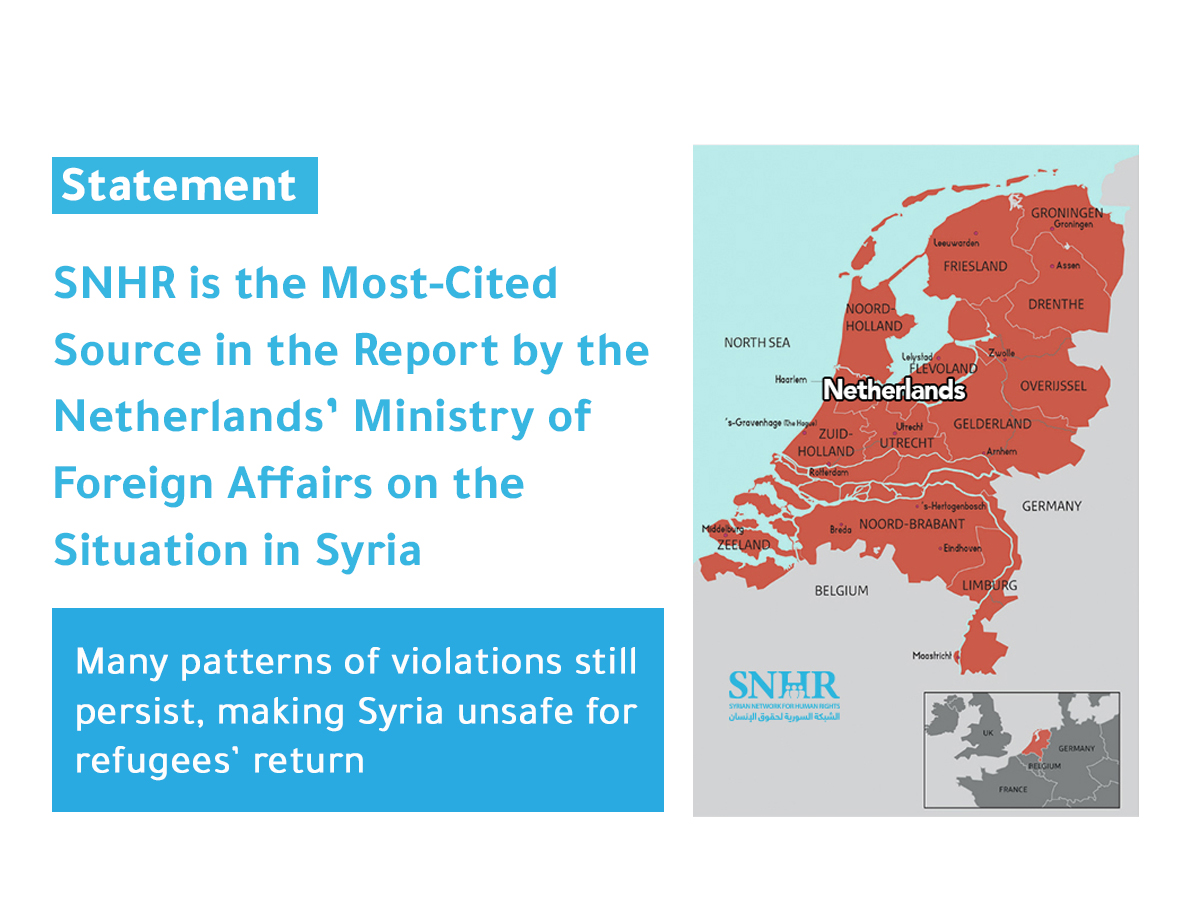Many patterns of violations still persist, making Syria unsafe for refugees’ return

Languages
Available In
In August 2023, the Netherlands’ Ministry of Foreign Affairs released a ‘general country’ report focusing on Syria, mainly in relation to the assessment of asylum requests for people coming from Syria, identifying which course of action should be taken with regard to returning Syrians whose asylum requests were rejected. While the report touches upon a number of subjects, it deals primarily with analysis of the human rights situation in Syria and the political and security developments in the country in the period from June 2022 to July 2023.
The report draws upon a number of human rights sources, ordered by the number of times they were cited in the report as follows:
Syrian Network for Human Rights (SNHR): 48 times.
UN Refugee Agency: 18 times.
UN Office for the Coordination of Humanitarian Affairs (OCHA): 18 times.
Independent International Commission of Inquiry on the Syrian Arab Republic (COI): 16 times.
The report also cites other sources such as the European Asylum Support Office, Human Rights Watch (HRW), and Amnesty International, in addition to reports by the UN Department of Secretary on the status of human rights, as well as other local and international organizations, newspapers, and media outlets.
SNHR has reviewed the 96-page report, which is written in Dutch. Below is a brief summary of the most notable information contained in it:
The report talks about the political and security situation in Syria, with a particular focus on internally displaced persons (IDPs), and refugees returning to the country. In this context, the report confirms that many refugees who have returned to Syria have suffered numerous violations by Syrian regime forces, even if they have agreed to security settlements with the regime.
The report also sheds light on the ever-worsening economic situation, stressing that the humanitarian situation is today the worst it has been since the beginning of the popular uprising. According to the report, over 90 percent of Syrians are living under the poverty line, and over 15.3 million Syrians are in need of humanitarian assistance.
While violence is at relatively low levels compared to recent years in the areas controlled by the different parties involved in the conflict, the report adds, civilians in regime-held areas, including the capital Damascus (described by the report as the most stable area, security-wise), face the constant risk of arbitrary arrest and enforced disappearance at the hands of government forces, in addition to facing harassment and violations by armed militias and criminal groups that enjoy impunity.


